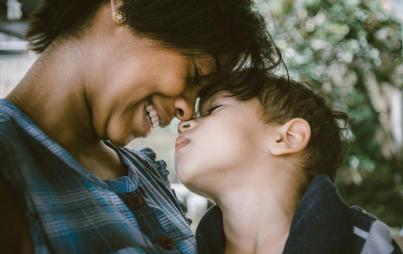
Photo by Priscilla Du Preez on Unsplash
From Jane Bennet in Pride and Prejudice to Katniss Everdeen in The Hunger Games, older sisters are stereotypically smart, boring, and successful.
Like moms and other women in caregiving roles, it seems that older sisters are disproportionately likely to take on family responsibilities.
From the time my mom and dad separated when I was five years old, I always tried to be perfect. As the oldest of three siblings, that meant that I had a lot of responsibilities.
Alma Leander said it best when she tweeted that “older sisters are the backbone of society and deserve financial compensation someone had to say it.” So far, 158k people have liked her tweet, including me.
Growing up, I took on the role of the peacemaker between them and the surrogate mom to my brother and sister. Between remembering parents’ birthdays, driving younger siblings to school, and getting a part-time job, it was challenging to balance healthy teenage rebellion with the expectations of perfection that society places on women and girls.
You Might Also Like: Comfort In Chaos: I Am The Crisis Friend
I got straight As and played sports I hated and did everything everyone asked me to do. I knew I was a people pleaser, but I told myself I was OK with that. When I graduated high school, I applied to study Law because my dad told me to. Thankfully, after a year of traveling, I realized I had no desire to be a lawyer. Instead, I compromised settled on Literature and Economics.
All through college, I let the pattern continue because I had never known anything different. I alternated between study and travel that took me far away from home (far enough, in hindsight, to effectively cut me off from my family) and intense periods of putting aside my life to try and fix my family’s problems. Just before graduation, I realized something.
I finally understood that being the perfect older sister had turned me into a complete mess.
I was living with and supporting my younger sister while she worked through some complex mental health problems, all while studying for my final exams, working twenty hours a week, and managing a complicated relationship between my parents and my sister.
I thought I was doing fine; of course, I could maintain my grades, support myself financially, and show up for my loved ones, because that’s what I always did.
But it turns out waking up in the middle of the night because you can’t breathe isn’t fine.
Sitting across from my doctor, I burst into tears when she asked how I was. She sent me for a blood test and had me answer a quiz. When I came back for my follow-up appointment a week later, she told me I fit the clinical criteria for an anxiety disorder and referred me to a therapist.
When I mentioned the diagnosis to a friend a couple of days later, she looked surprised and asked, “You didn’t know?”
She reminded me about the time she helped me through an anxiety attack a couple of years earlier that I’d forgotten about. I was raised fearing making mistakes, failing, or even being present for the discomfort of those around me. Feeling so anxious that I had to leave a party was so typical, it didn’t stand out in my memory.
Older sisters are strong, so I waited weeks before telling my mom that I was struggling with my mental health. Eventually, I couldn’t pretend anymore. She immediately offered to book me a therapy session and told me to put it on her credit card.
I realized that the reason I’d felt so alone and overwhelmed was that I’d never let myself be vulnerable; I’d never asked for help before.
My mom tells a story about how, when I was very young, I couldn’t cope with changes to the routine. If someone dropped by the house unannounced, I’d hide behind her skirt and refuse to talk to them. If we were going to a BBQ or a birthday party, she had to prepare me at least a couple of days in advance. Even then, I was a control freak. I guess I was born to be a perfect older sister.
A couple of months (and multiple therapy appointments) later, my family is still messy. The difference is I am too. I’m learning to practice radical acceptance, a skill taught in dialectical behavioral therapy, which encourages us to let go of the things we can’t control, because fighting against them only leads to suffering.
The unexpected thing about accepting imperfection is that I’m closer to my family than ever.
Now, when I let my younger sister see my weaknesses, she feels less alone on her own mental health journey. When I’m honest with my parents about what I can and can’t help out with, it takes the resentment out of our relationship. I might not be perfect, but I’ll always be there for my family. And to me, that’s the most important part.








